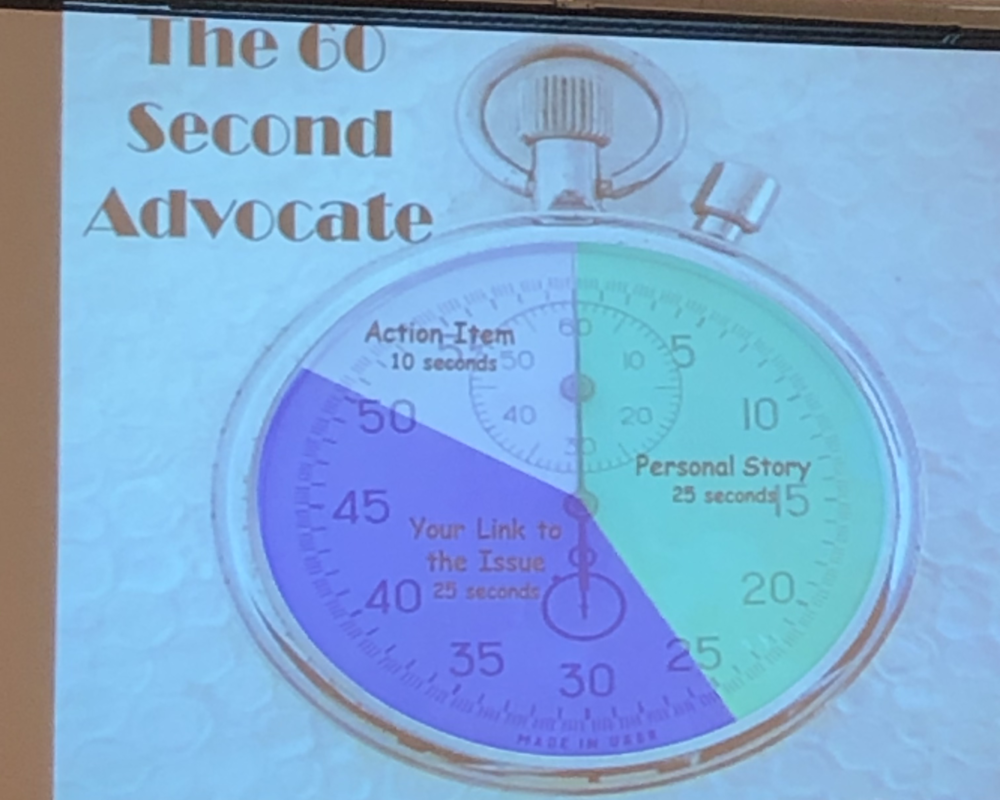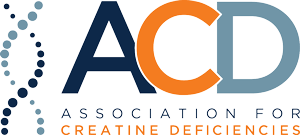
“A Look into My Experiences at Rare New England” – Celeste
If you’ve ever wondered how to get involved with advocacy at the ACD and what I’ve been learning from attending conferences, continue reading!
Some of you may know me as the mom of Paisley and Levi (7 years old with CTD) and some may have seen that I’ve recently joined the ACD as an ambassador. I wanted to share a glimpse of how I’ve been involved and what I’ve learned along the way in this new world of involvement and advocacy.
A few months ago, I saw a flier on Facebook from a rare disease organization advertising Rare New England’s Annual Conference in late October in Portland, Maine. Looking over the agenda, I decided to inquire with Rare New England about any scholarships that they were offering to attendees of the conference. I found out that they were indeed offering some, so I filled out and submitted the application. A few weeks later, I found out that I had been awarded a scholarship that included one conference registration fee and one night in a hotel. Fast forward a few more weeks that were busy figuring out logistics at home while I would be traveling, and I was beginning to get super excited about the end of October.
Fresh off of learning the ropes of setting up a booth and exhibiting on behalf of the ACD at the Child Neurological Society’s Annual Conference in Charlotte, I flew to Portland, Maine to represent the ACD at the Rare New England Annual Conference.
As I checked in the hotel and walked past the meeting room for the Rare New England Annual Conference, I recall thinking how small of a room it was… maybe eight tables with eight chairs at each. However, I had to remind myself that in comparison to attending the Global DIA Annual Conference in June (mostly pharma companies and regulatory agencies) and the Child Neurological Society’s Annual Conference (mostly doctors and medical professionals), this one would be smaller. It turned out to be another facet of representing the ACD and creatine deficiencies that I had yet to experience.
The set-up of the room turned out to be perfect for allowing everyone to engage with one another throughout the day. At my table, I sat with one of the Rare New England board members–Lisa Deck, two ladies who just started a nonprofit for MoyaMoya Disease, and a mom whose daughter has a rare disease. It turned out to be the perfect fit.
The agenda for Rare New England was packed full! There were great discussions on consumer-based genetic testing, telegenetics, rare disease clinical trials, gene therapy, genetic education materials for schools, and parent advocacy.
What I found most interesting and useful for our community was what I learned about the following:
- Legislative Tips 101 (Lisa Deck)
- The goals of advocacy are to exercise your rights, communicate your views and wishes, and have your voice heard.
- In a meeting with a legislator, always say your name and address, state that you are a constituent, thank them for their time, be brief and to the point, know some legislation familiar to your cause (what you are advocating for), and maintain eye contact.
- DON’T get on your phone, go off-topic, or bring up controversial topics!
- There are different forms of advocacy. You can start with sending emails/letters, calling legislators or their health aides (leaving a voicemail counts!), and meeting in person… this works at the local, state, and federal levels!
- Practice your “60-second advocate” speech. It should be a 25-second personal story, your 25-second link to the issue that you are lobbying on, and a 10-second action item you are proposing.
- I Teach, but You Teach Better (Mark Korson)
- There are ONLY about 140 practicing metabolic clinicians in the US; 50% of clinics are run by doctors who have no formal training in metabolics.
- We need to tell our stories to residents… we are the experts about CCDS!
- Rare New England hosts a speaker series at various medical schools throughout New England in conjunction with Rare Disease Day in February. At each medical school, one rare disease patient/family/caregiver gets the chance to tell their story to medical students.
- Helpful Resource: Next Step (Quita Christison)
- The “Next Step” agency offers free camp-like conferences or “campfrences” to 16-29-year-olds affected by a rare disease. This empowering event helps attendees take ownership of their stories and learn to advocate for themselves. For more information, click here.
There was also a small resource/sponsor room set up for attendees to visit throughout the day. There were a few booths with pharma companies, a few booths with genetic testing companies, a couple of nonprofits focused on specific diseases, an attorney’s office, and a booth for Rare New England. As I visited each booth, I was able to share about the CCDS and the ACD. It was a good experience for me to become more comfortable in sharing about the CCDS and the work the ACD does. I was able to engage with the pharma company representatives, inquiring if they were aware of creatine deficiencies. I was able to engage with the genetic testing companies, inquiring if the GATM, GAMT, and SLC6A8 genes were included on their panels. It was nice to connect to other nonprofits of rare diseases… though our diseases are different, the rareness and fighting to find a treatment/cure brings us together. I was able to engage with the attorney about her story and inquire if she knew of legal resources in my area familiar with the special needs community. I was able to engage with Rare New England board members and talk with them about AGAT, GAMT, and CTD… what they are, the symptoms, how they are diagnosed, treatments (AGAT/GAMT), etc… I wanted them to be aware and knowledgeable about our ACD community, in case they have any families contact them who are newly diagnosed with CCDS, so they could link them with us.
All in all, attending the Rare New England Annual Conference, combined with my experiences at the Global DIA Annual Conference and the Child Neurological Society’s Annual Conference, have allowed me to become comfortable representing the ACD community, networking, and interacting with a variety of people in the rare disease community. :)





